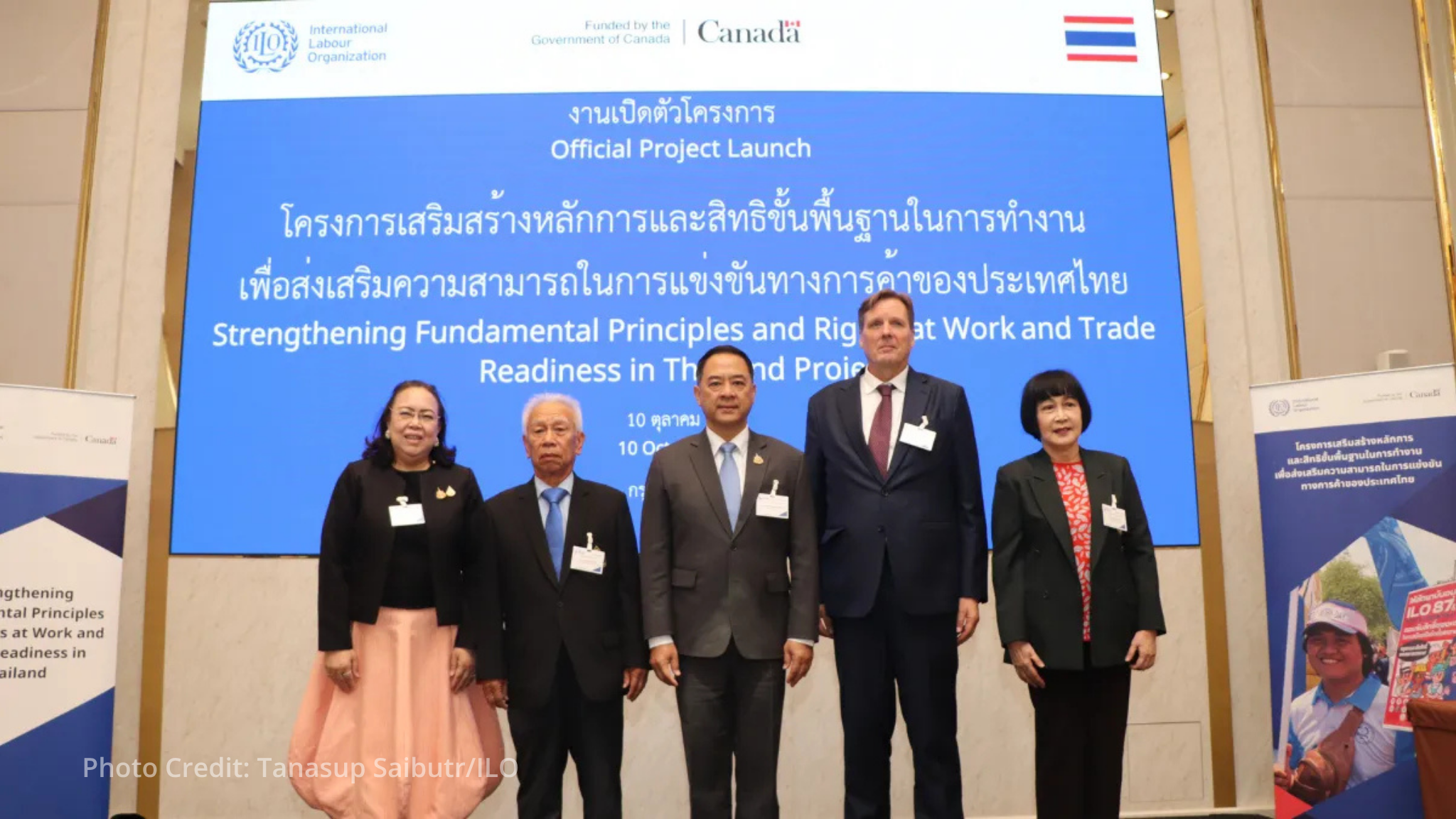The International Labour Organization (ILO) and Canada launched a three-year project to strengthen labor rights and boost competitiveness in Thailand’s rubber industry, officials announced at an October 10 event in Bangkok.
The “Strengthening Fundamental Principles and Rights at Work and Trade Readiness in Thailand” initiative brings together the Ministry of Labour, employers, and workers’ organizations to align the country’s labor practices with international standards. The project focuses on Thailand’s rubber supply chain, which employs over six million people and generated $19.22 billion in exports last year. Canadian funding will support training programs, legal reforms, and dialogue to prevent child labor while improving workplace safety and collective bargaining rights.
Thailand produces and exports about one-third of the world’s natural rubber, making it the global leader in an industry that spans from southern plantations to industrial zones producing tires, gloves, and other rubber products. The country’s warm, humid climate supports the entire supply chain, but labor conditions vary widely across different operations. Many workers face safety risks, limited bargaining power, and inadequate protections. Free trade agreements and global supply chain demands increasingly require countries to meet international labor standards, creating both pressure and opportunity for Thailand.
Deputy Permanent Secretary Samart Pattamasukhon said the project “will serve as a vital instrument in strengthening fundamental rights for workers” while showing that “treating workers fairly not only boosts productivity but also builds positive workplace relationships.” Canadian Minister Patty Hajdu emphasized that “workers do more than contribute to our economies – they drive progress, support families, and strengthen communities.” The initiative will train government officials, employers, and worker representatives on core labor rights including freedom of association and collective bargaining.
Business and union leaders both backed the project at the launch event. Employers’ Confederation of Thailand Secretary-General Siriwan Romchatthong said “responsible business practices and meaningful social dialogue” help create “resilient supply chains that deliver long-term value.” Trade union leader Tavee Deeying called it “a critical opportunity to strengthen the voice of workers in Thailand” through respect for organizing and bargaining rights.
The project demonstrates how labor standards connect to trade competitiveness in today’s global economy. ILO Director Xiaoyan Qian said the initiative uses “inclusive and effective social dialogue” to create practical solutions that protect workers while helping Thailand compete in international markets. As more countries include labor provisions in trade deals, Thailand’s progress could become a model for other developing nations balancing economic growth with worker protections.

